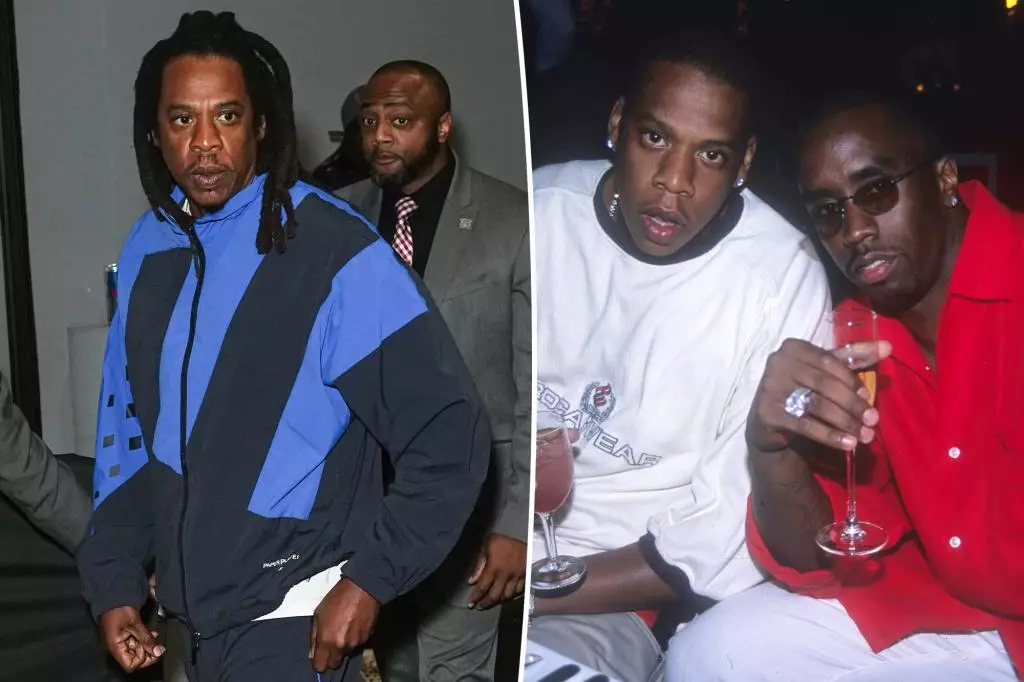In a critical development regarding allegations that have surfaced against notable figures in the music industry, a New York judge has permitted the plaintiff, an unnamed woman, to continue her lawsuit against hip-hop icons Jay-Z and Sean “Diddy” Combs while maintaining her anonymity. This decision highlights the sensitive nature of sexual assault cases, especially those involving high-profile celebrities, where the line between justice and public perception becomes blurred. The ruling from Judge Analisa Torres emphasizes that the vulnerability of the alleged victim is a primary consideration, a notion that continues to spark debates surrounding the treatment of such cases within the legal framework.
The plaintiff’s claims date back to an incident at the 2000 MTV Video Music Awards afterparty, where she alleges she was raped by both Jay-Z and Combs when she was just 13 years old. The emotional and psychological implications of these allegations are heavy, with the woman reportedly suffering from severe post-traumatic stress disorder, depression, and a seizure disorder linked to the trauma of her experience. Judge Torres’ decision reflects an understanding of the serious ramifications that public disclosure could have on the alleged victim, thereby prioritizing her psychological well-being during this stage of litigation.
Judge Torres did not hold back when critiquing the legal approach taken by Jay-Z’s counsel, Alex Spiro. The judge expressed dismay at what she described as “combative motions” that included inflammatory language and personal attacks, labeling it as a “waste of judicial resources.” This acknowledgment points to a broader issue in high-stakes legal battles, where aggressive legal strategies may not be conducive to a fair and respectful process.
The ruling underlines the notion that respect within court proceedings is paramount; lawyers are urged to focus on facts and evidence rather than resorting to tactics that might undermine the dignity of the legal system. Spiro’s request for expedited consideration due to media scrutiny underscores the complex interplay between celebrity and the judicial process, suggesting that the pressures of public opinion can cloud the pursuit of justice.
The case is not merely a legal matter; it speaks to the challenge of reconciling celebrity culture with accountability. High-profile figures often wield significant influence, which sometimes prevents victims from coming forward for fear of their stories being dismissed or sensationalized. In the current climate, where social media amplifies narratives and public discourse, the ramifications of these allegations extend beyond the courtroom, affecting both the careers of the accused and the wellbeing of the accuser.
Jay-Z and Combs’ swift denial of the allegations, labeling them as “heinous” and criticizing the plaintiff’s attorney, indicates a strategic defense that seeks to preserve their public personas amidst grave accusations. Such responses may protect their star status in the short term but can also lead to further scrutiny into past behaviors, challenging the perception of inherent innocence until proven guilty.
As the case continues, it will be essential to observe how the legal system balances the rights of the accused with the vulnerabilities of the accuser. The decision to allow anonymity serves to protect the alleged victim while also presenting challenges to the defendants, who are striving to clear their names in a highly charged environment.
Ultimately, this case serves as a critical lens through which society must examine the treatment of sexual assault allegations, especially in the context of celebrity. The intersection of fame, vulnerability, and the pursuit of justice requires careful navigation, ensuring that the legal process is both equitable and sensitive to the deeply personal experiences that bring individuals into its fold. As this lawsuit unfolds, the legal community and the public alike should reflect on the ongoing need for reform in handling such sensitive cases.

